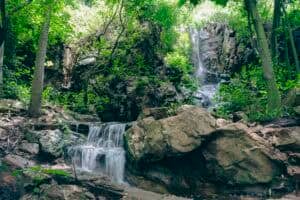The captive-bred lion industry is in itself an ethical conundrum, making yesterday’s ruling which overturned the former environmental minister's quotas even more ground-breaking.

A much-anticipated ruling on contentious lion bone quotas has found that late minister of environmental affairs Edna Molewa’s 2017 and 2018 figures were unlawful. According to Judge Jody Kollapen, the quotas were reportedly not legal and were constitutionally invalid.
Last year’s quota was increased dramatically from 800 in 2017 to 1 500 (with or without the head). The figure was allegedly “agreed upon” due to evidence from a research project established by the South African National Biodiversity Institute and a collaboration between Wits University, Oxford University and the University of Kent.
According to the department’s website, the research found there was a stockpile of lion bones in the country that was increasing. There had been no significant increase in poaching of wild lions, but an increase in hunting of captive-bred lions had been seen.
It also said the captive breeding industry was “in a state of flux” as breeders respond in different ways to the US’ restrictions on trophies, as well as the imposition of the skeleton export quota”.
The captive-bred lion industry is in itself an ethical conundrum, making yesterday’s ruling even more ground-breaking.
The National Council of SPCAs (NSPCA) has been fighting for some time for the lion bone trade to be abolished. Last September, the NSPCA applied for an urgent interdict against the minister of environmental affairs, the SA Predator Association and the MECs of economic development and environment in Limpopo, North West, Gauteng and Free State in a bid to get it suspended.
For lion bone quotas to be confirmed, the decision must be made in accordance with the Scientific Authority and professional reviews of all available information. The public can submit information for consideration by the Scientific Authority.
The NSPCA argued last year that as soon as it submitted a request for a review of 2017’s quota, the 2018 quota was announced and confirmed.
This was while it had two legal processes in the pipeline. It also argued that although the department said no wild lions were at risk, the Endangered Wildlife Trust highlighted that wild lions, especially in Mozambique, had come under increasing threat for their body parts, which the department downplayed.
The NSPCA argued in court the lion bone trade sees captive-bred lions at times kept in deplorable conditions. The judge criticised the state for this, adding that if SA pursued this trade, captive-bred animals had to live in legally specified conditions.
If this did not occur, it sent the message that SA was open for business regardless of the conditions lions were in, which the judge said contravened “the spirit of the constitution”.
Minister of Environmental Affairs Barbara Creecy has not yet set a quota for this year.
For more news your way, download The Citizen’s app for iOS and Android.
Support Local Journalism
Add The Citizen as a Preferred Source on Google and follow us on Google News to see more of our trusted reporting in Google News and Top Stories.






